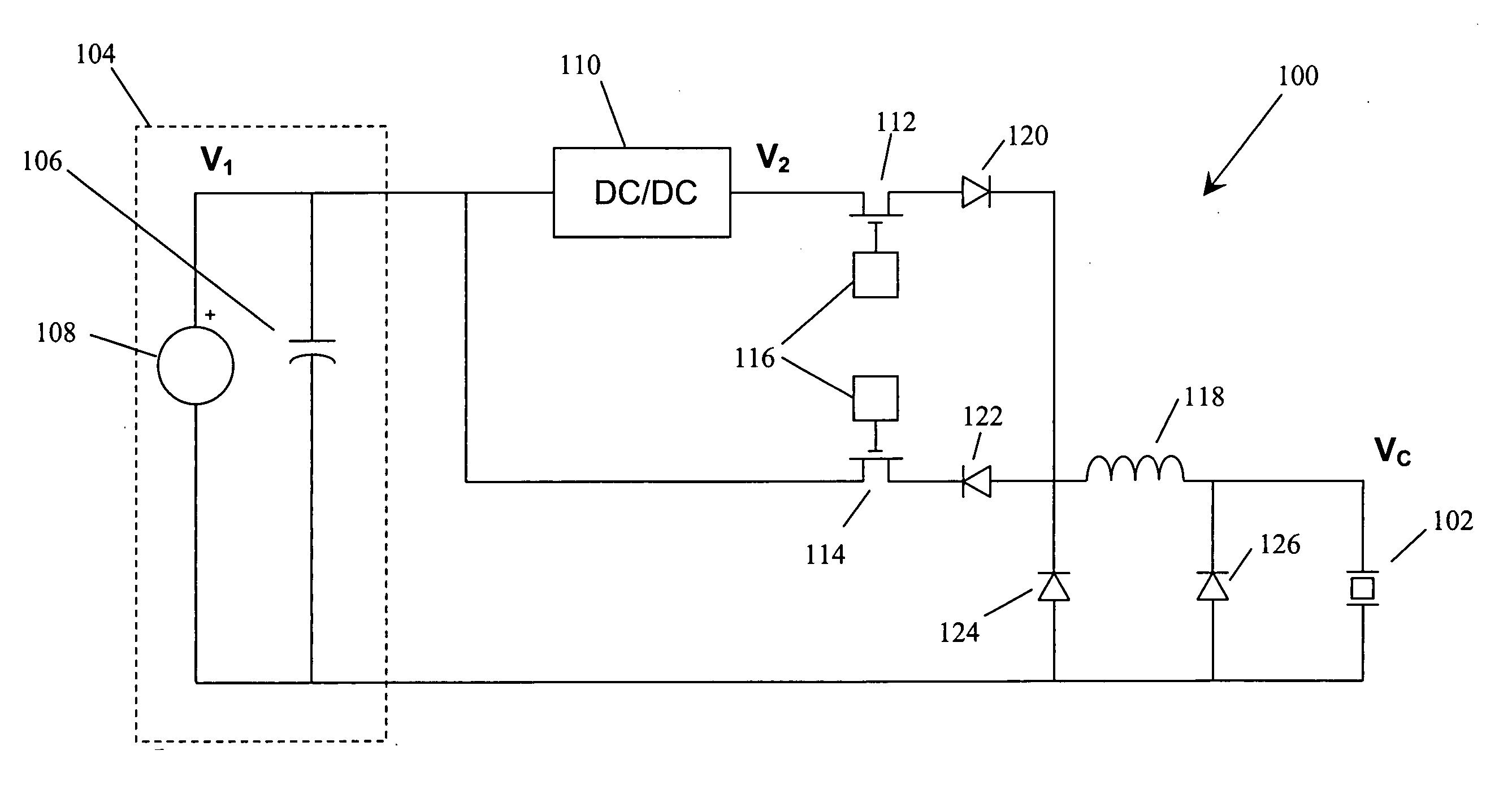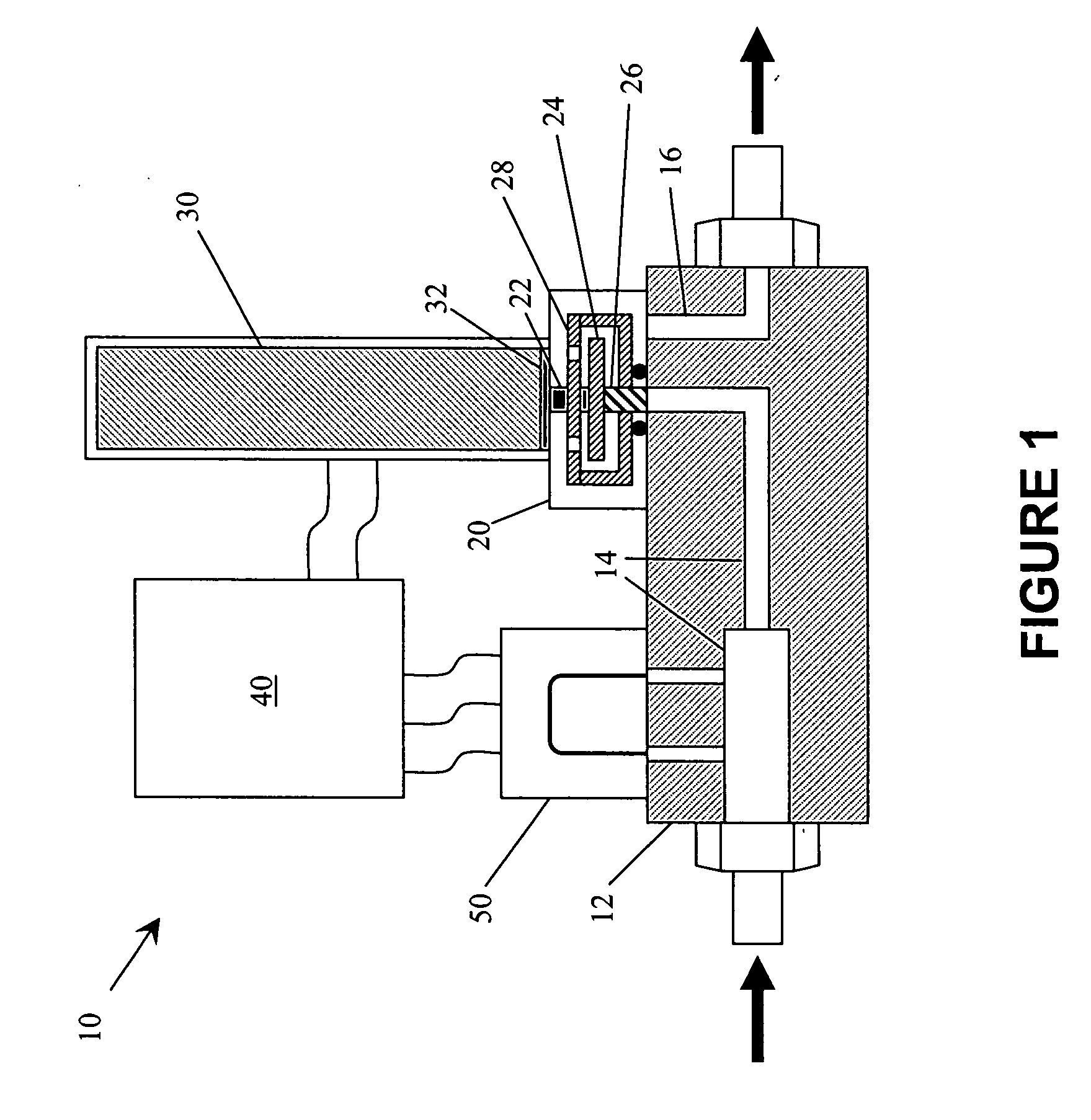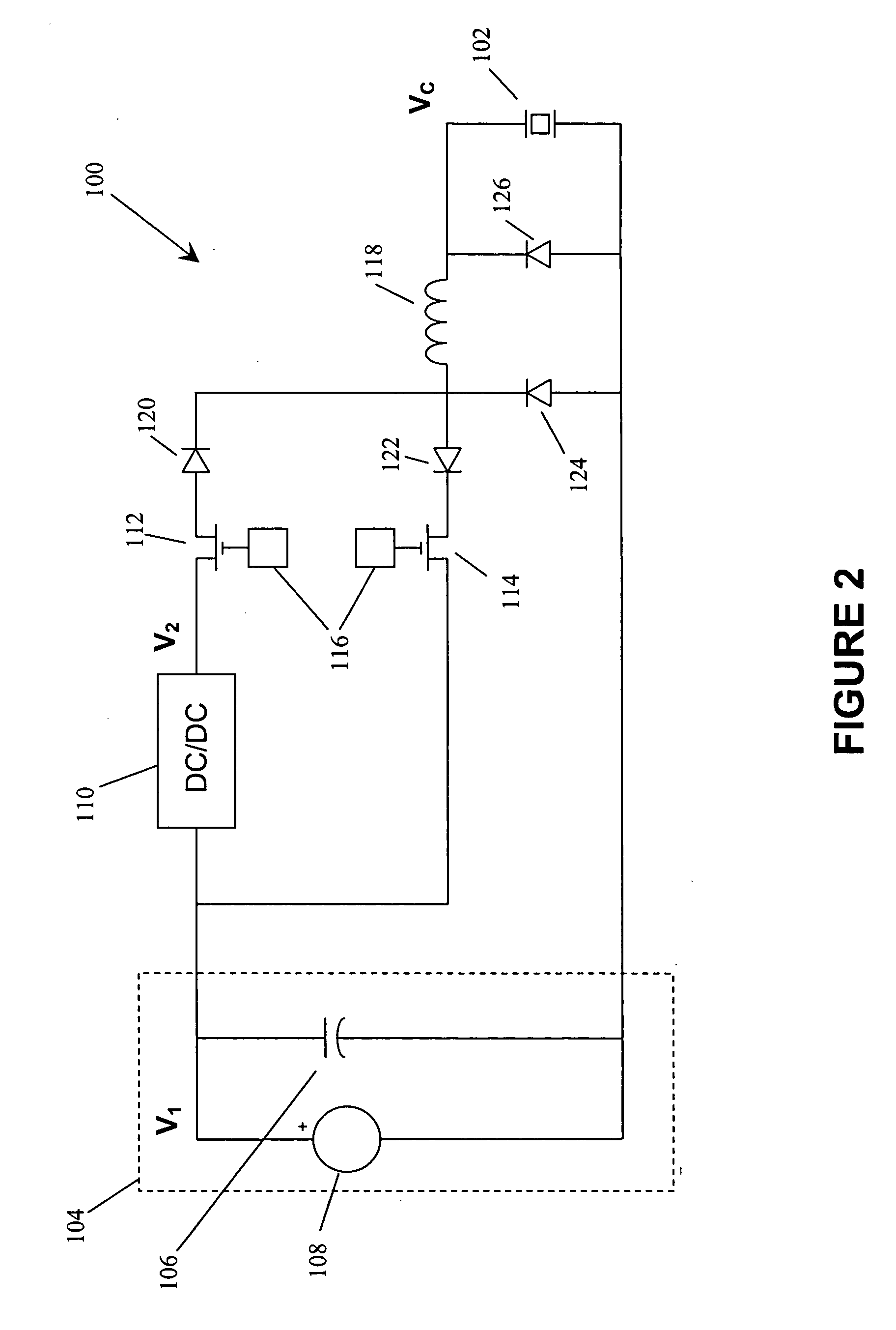Reactive load resonant drive circuit
a reactive load and drive circuit technology, applied in the direction of valves, generators/motors, mechanical equipment, etc., can solve the problems of unfavorable lower limit of flow path open time, slow charge transfer speed, and inconvenient operation of mass flow controller devices. achieve rapid charge transfer, avoid excessive peak current and significant resistive energy dissipation, the effect of rapid charge transfer
- Summary
- Abstract
- Description
- Claims
- Application Information
AI Technical Summary
Benefits of technology
Problems solved by technology
Method used
Image
Examples
Embodiment Construction
[0020]FIG. 1 illustrates one embodiment of a mass flow controller device that incorporates features of the invention. Mass flow controller 10 comprises controller base 12 having upstream and downstream gas flow passages 14 and 16, respectively. Gas flow between passages 14 and 16 is controlled by valve assembly 20. When actuated, piezoelectric stack 30 transmits force through diaphragm 32 and plunger 22 to poppet 24, which opposes the force of spring 26 to create a gas flow path through orifice plate 28. Actuation of piezoelectric stack 30 is controlled by drive circuitry on electronics board 40. A sensor loop 50 provides measurements of properties of the gas stream flow to control electronics on electronics board 40.
[0021]FIG. 2 illustrates actuation circuitry in accordance with one embodiment of the invention. Circuit 100 drives a piezoelectric actuator 102 depicted as a capacitive load. Circuit 100 further comprises low voltage source 104 providing DC power at voltage V1 and ste...
PUM
 Login to View More
Login to View More Abstract
Description
Claims
Application Information
 Login to View More
Login to View More - R&D
- Intellectual Property
- Life Sciences
- Materials
- Tech Scout
- Unparalleled Data Quality
- Higher Quality Content
- 60% Fewer Hallucinations
Browse by: Latest US Patents, China's latest patents, Technical Efficacy Thesaurus, Application Domain, Technology Topic, Popular Technical Reports.
© 2025 PatSnap. All rights reserved.Legal|Privacy policy|Modern Slavery Act Transparency Statement|Sitemap|About US| Contact US: help@patsnap.com



